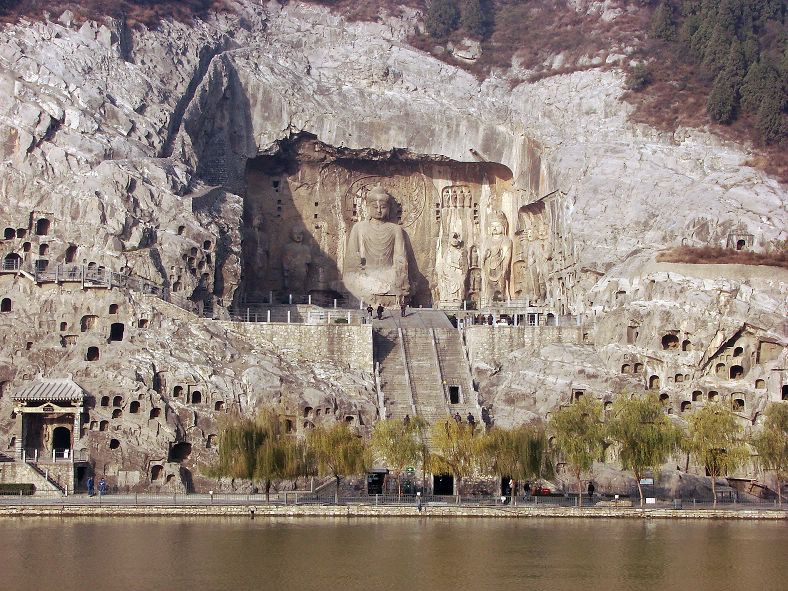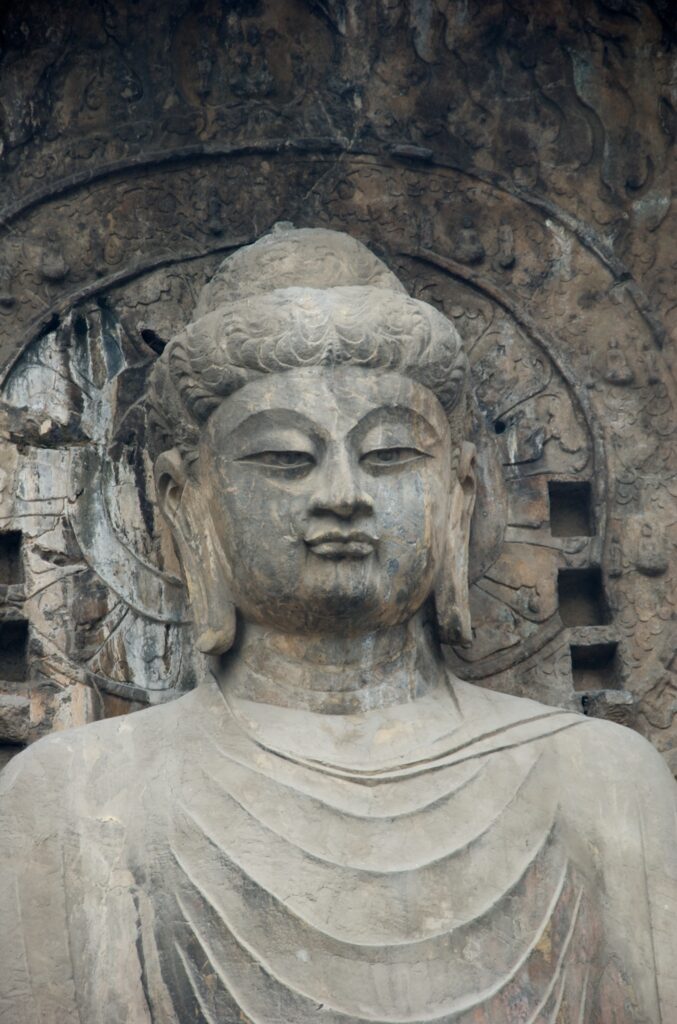龙门石窟

“Longmen Grottoes is the treasure house of Eastern art.”
– Hu Shi
Longmen Grottoes, located near Luoyang in Henan Province, is one of the most famous ancient Buddhist sculptural sites in China. The site provides a valuable insight into Chinese art, religion and history.
Introduction
The Longmen Grottoes contain around 1,400 caves with over 100,000 statues, ranging from small ones only 1 inch (25 mm) tall to the largest Buddha statue standing 57 feet (17 m) high. The site also boasts around 2,500 stelae and 60 pagodas. The grottoes are situated on both sides of the Yi River, with the west hill cliffs housing 50 large and medium-sized caves credited to the Northern, Sui, and Tang dynasties. In contrast, the caves on the east hill were entirely carved during the Tang dynasty. The caves reflect a “progression in style” with simple, well-shaped early caves featuring carvings of Buddha and religious figures, and more complex later caves from the Tang dynastic period which incorporate depictions of women and court figures.


History
The carving of the Longmen Grottoes took place in four distinct phases. During the first phase, the Northern Wei dynasty (AD 386-534) began carving caves in the limestone cliffs in 493, which continued until the early part of the sixth century. The second phase experienced a slow development of the grottoes, owing to conflicts in the region, between 524 and 626, during the reign of the Sui dynasty (581-618) and early part of the Tang dynasty (618-907).

During the third phase, which occurred during the Tang dynasty, Chinese Buddhism thrived, leading to an abundance of cave-carvings from 626 to the mid-eighth century. The fourth phase saw a decline in the creation of grottoes from the late Tang to the Northern Song dynasty rule, which ultimately ended due to civil war between the Jin and Yuan dynasties.